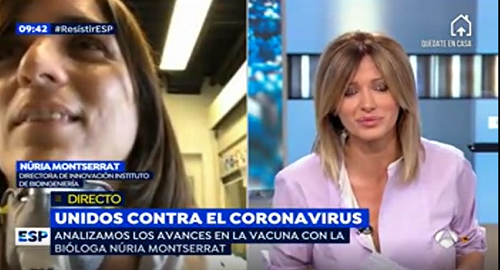Coronavirus
IBEC supports the EU initiative “Coronavirus Global Response”
 The Institute for Bioengineering of Catalonia (IBEC) supports the EU initiative to pledge funds for collaborative development of solutions against COVID19. Carmen Hurtado, from the Group of ICREA Professor Núria Montserrat at IBEC contributes to spread the word of “Coronavirus Global Response” initiative in a video for the European Commission.
The Institute for Bioengineering of Catalonia (IBEC) supports the EU initiative to pledge funds for collaborative development of solutions against COVID19. Carmen Hurtado, from the Group of ICREA Professor Núria Montserrat at IBEC contributes to spread the word of “Coronavirus Global Response” initiative in a video for the European Commission.
The European Union and its partners are hosting an international pledging marathon that started last Monday 4 May 2020 and will be running until the end of May 2020.
A low-cost ventilator for areas with limited means
 A project led by the University of Barcelona to which IBEC Group Leader Daniel Navajas has contributed has created a non-invasive low-cost ventilator to support patients with respiratory diseases in areas with limited means.
A project led by the University of Barcelona to which IBEC Group Leader Daniel Navajas has contributed has created a non-invasive low-cost ventilator to support patients with respiratory diseases in areas with limited means.
Non-invasive ventilators are usually used to treat patients with respiratory failure: for example, those with severe complications due to COVID-19.
Núria Montserrat in a feature article at the ERC’s covid-19 section: Stopping coronavirus at the gate
ERC grantee Nuria Montserrat and her team create tiny kidneys which are proving to be key in the search for coronavirus drugs. The researcher is working with other international researchers and found that a trial drug could block early stages of COVID19. The ERC has created a section which is updated with the latest news about the ERC-funded research in coronavirus.
Catalan research labs repurposed for mass COVID-19 testing service
 Laboratories in three Catalan research centers, including IBEC, will be adapted as Covid-19 mass detection services.
Laboratories in three Catalan research centers, including IBEC, will be adapted as Covid-19 mass detection services.
The Centre for Genomic Regulation (CRG) is coordinating a task force with the Institute for Research in Biomedicine (IRB Barcelona) and the Institute for Bioengineering of Catalonia (IBEC), as requested by the Generalitat de Catalunya, to set up mass testing for citizens to stop the spread of the new coronavirus outbreak.
Mini-kidneys to test a drug to stop Covid-19
 Nuria Montserrat, principal investigator of the “Pluripotency for organ regeneration” and her group have participated in an international study to find a treatment to stop the virus from continuing infecting other cells, preventing the virus from replicating.
Nuria Montserrat, principal investigator of the “Pluripotency for organ regeneration” and her group have participated in an international study to find a treatment to stop the virus from continuing infecting other cells, preventing the virus from replicating.
Researchers at IBEC help identifying a drug in clinical phase that blocks the effects of SARS-Co-V2
 IBEC researchers led by ICREA Research Professor Núria Montserrat, together with international collaborators, have identified a drug capable of blocking the effects of the SARS-Co-V2 virus, the origin of the Coronavirus 2019 disease.
IBEC researchers led by ICREA Research Professor Núria Montserrat, together with international collaborators, have identified a drug capable of blocking the effects of the SARS-Co-V2 virus, the origin of the Coronavirus 2019 disease.
The treatment, which can be tested on two hundred Covid-19 patients as of today, has proven effective in mini-kidneys generated from human stem cells. Using hese organoids generated by bioengineering techniques, it has been deciphered how SARS-Co-V2 interacts and infects human kidney cells.
IBEC in the catalan TV news
 IBEC appears on the catalan news on TV3, where they summarise the various Catalan initiatives to fight against Covid-19.
IBEC appears on the catalan news on TV3, where they summarise the various Catalan initiatives to fight against Covid-19.
IBEC participates in an international study to stop coronavirus contagion
Researchers at the Institute of Bioengineering of Catalonia (IBEC) led by Professor ICREA Núria Montserrat are studying the role of the receptor ‘Angiotensin converting enzyme’ (ACE2), one of the pathways that the SARS-Co-V2 virus uses to enter our body.
To do this, experts use mini-kidneys, as well as other cell cultures such as cardiac organoids. The goal is to exploit these mini-organs to better understand how the virus works.

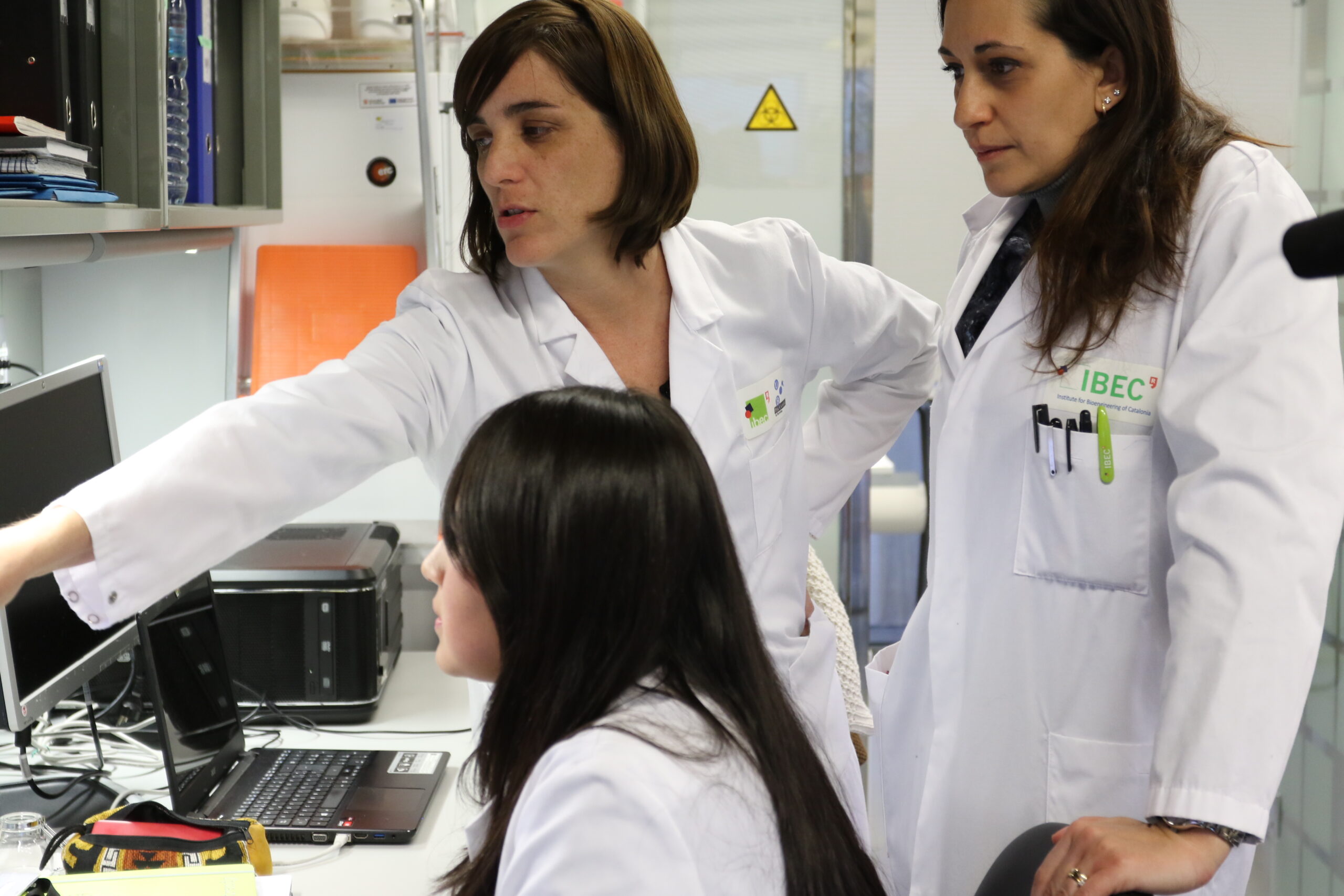
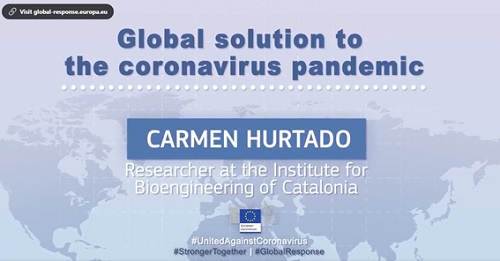
 The Institute for Bioengineering of Catalonia (IBEC) supports the EU initiative to pledge funds for collaborative development of solutions against COVID19. Carmen Hurtado, from the Group of ICREA Professor Núria Montserrat at IBEC contributes to spread the word of “Coronavirus Global Response” initiative in a video for the European Commission.
The Institute for Bioengineering of Catalonia (IBEC) supports the EU initiative to pledge funds for collaborative development of solutions against COVID19. Carmen Hurtado, from the Group of ICREA Professor Núria Montserrat at IBEC contributes to spread the word of “Coronavirus Global Response” initiative in a video for the European Commission.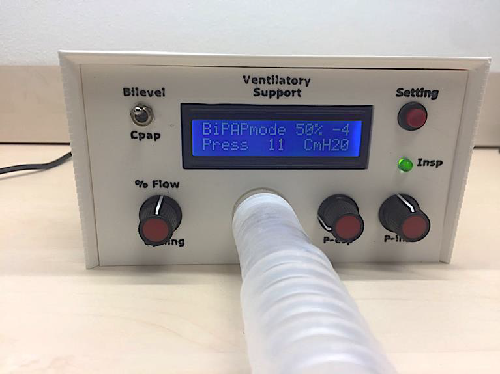
 A project led by the University of Barcelona to which IBEC Group Leader Daniel Navajas has contributed has created a non-invasive low-cost ventilator to support patients with respiratory diseases in areas with limited means.
A project led by the University of Barcelona to which IBEC Group Leader Daniel Navajas has contributed has created a non-invasive low-cost ventilator to support patients with respiratory diseases in areas with limited means.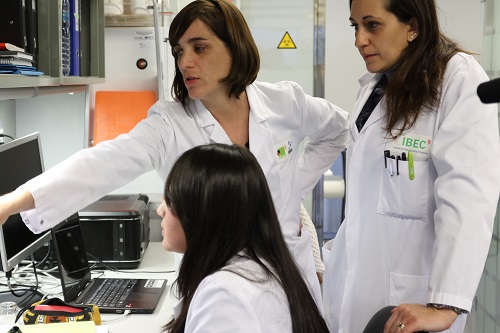
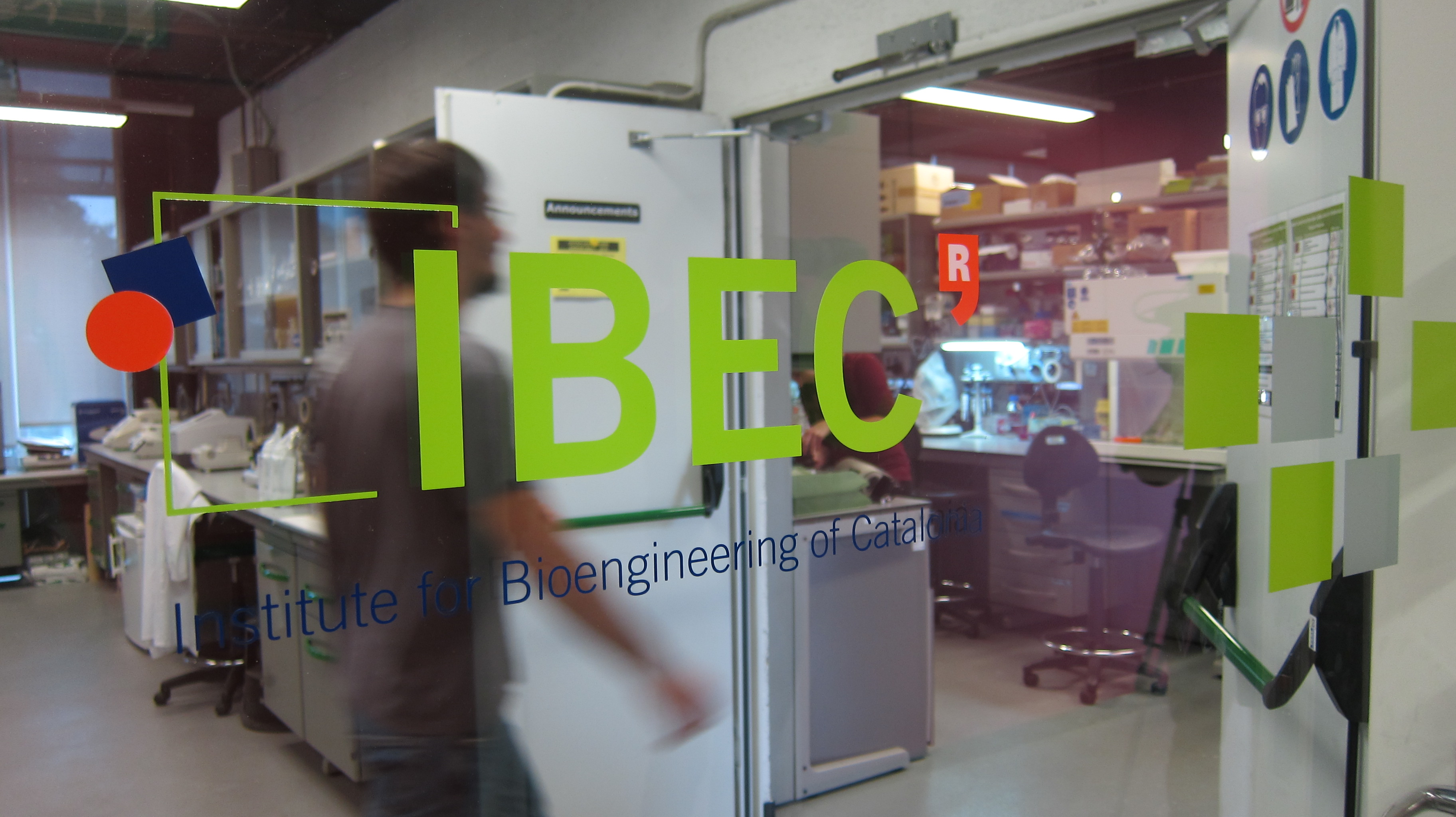
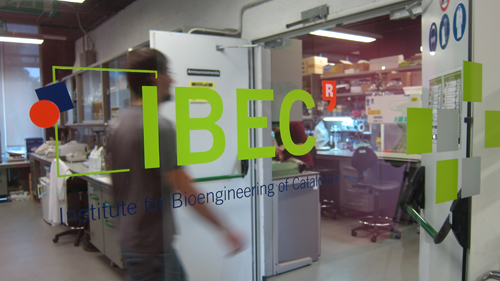 Laboratories in three Catalan research centers, including IBEC, will be adapted as Covid-19 mass detection services.
Laboratories in three Catalan research centers, including IBEC, will be adapted as Covid-19 mass detection services. 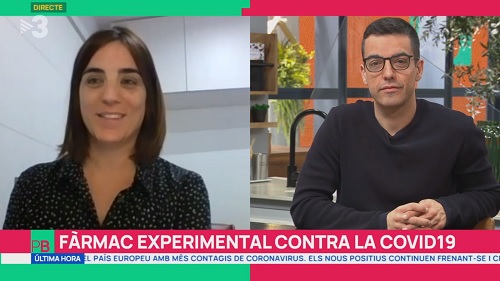
 Nuria Montserrat, principal investigator of the “Pluripotency for organ regeneration” and her group have participated in an international study to find a treatment to stop the virus from continuing infecting other cells, preventing the virus from replicating.
Nuria Montserrat, principal investigator of the “Pluripotency for organ regeneration” and her group have participated in an international study to find a treatment to stop the virus from continuing infecting other cells, preventing the virus from replicating. IBEC researchers led by ICREA Research Professor Núria Montserrat, together with international collaborators, have identified a drug capable of blocking the effects of the SARS-Co-V2 virus, the origin of the Coronavirus 2019 disease.
IBEC researchers led by ICREA Research Professor Núria Montserrat, together with international collaborators, have identified a drug capable of blocking the effects of the SARS-Co-V2 virus, the origin of the Coronavirus 2019 disease.
